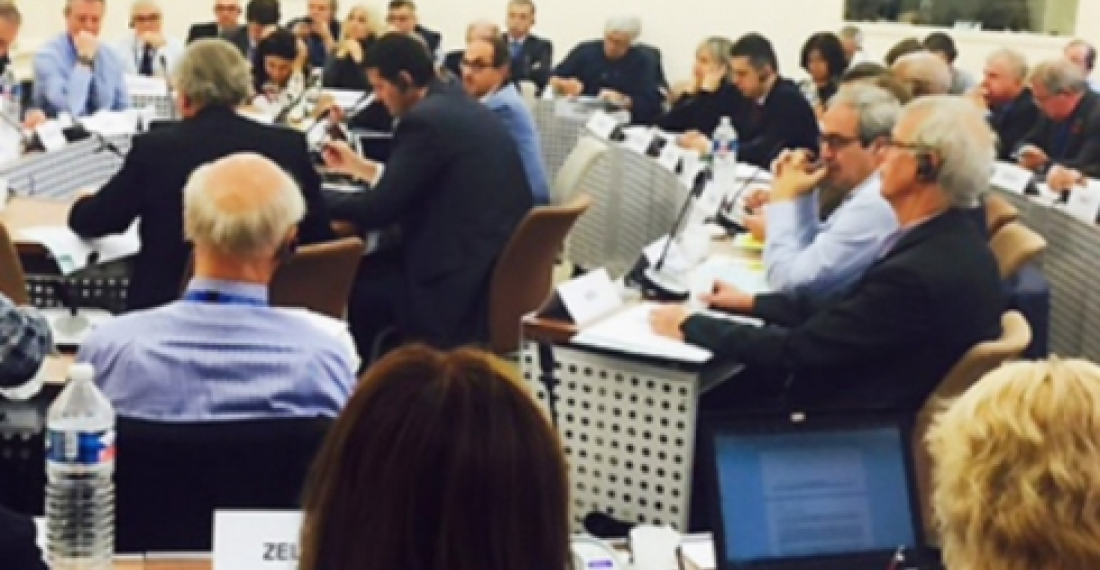The Political Committee of the Parliamentary Assembly of the Council of Europe (PACE) on Wednesday (4 November) adopted a draft for a resolution on the Karabakh conflict to be discussed in the Plenary Session of PACE in January. In a move seen as breaking with past practice the text uses language which is significantly different from what has been the case so far in resolutions related to the Nagorno-Karabakh conflict adopted by European and international bodies.
Reporting the development, the website of PACE stated:
"In a draft resolution approved today, the Political Affairs Committee of the Parliamentary Assembly of the Council of Europe (PACE) has called for “the withdrawal of Armenian armed forces and other irregular armed forces from Nagorno-Karabakh and the other occupied territories of Azerbaijan, and the establishment of full sovereignty of Azerbaijan in these territories", in the framework of the OSCE Minsk process.
The committee also called for "the convening of a plenary meeting of the Minsk Group to establish an interim status for Nagorno-Karabakh guaranteeing security and internal self-governance, with an agreed corridor linking Armenia to Nagorno-Karabakh, and other confidence-building measures, including an access corridor to Nakhchivan".
Strongly condemning the deliberate targeting of civilian settlements close to the line of contact, the committee said it regretted that the Nagorno-Karabakh problem has been side-lined by other major international crises. "Further procrastination only complicates the settlement of this 'un-frozen' conflict which has claimed over a hundred human lives since the beginning of 2014, and which may escalate into a real war between two Council of Europe member States", it added.
Recalling that both Armenia and Azerbaijan committed themselves, when joining the Council of Europe in 2001, to use only peaceful means for settling their conflict over the Nagorno-Karabakh region, the committee urged both governments to refrain from using armed force.
The committee also called for the establishment by the OSCE of an international peacekeeping force to maintain security within Nagorno-Karabakh and the other occupied territories and to ensure the safe return and resettlement of displaced persons, as well as the creation of a mechanism to investigate ceasefire violations.
The draft resolution, based on a report by Robert Walter (United Kingdom, EC), is due to be debated by the Assembly at its January 2016 session."
Commonspace.eu political editor said in a comment that "whilst in essence the resolution does not say things that are much different from what the international community has been saying for a long time the language used in the text of the resolution adopted by the PACE Political Committee is significantly different. This will be welcomed in Azerbaijan but scorned at in Armenia. Baku will be encouraged by the call for the withdrawal of Armenian forces from territories it lost in the conflict more than two decades ago. Armenia however insists that the internatiuonal community should adhere strictly to the terminology adopted by the OSCE Minsk Group co-Chair, and recognises only them as mediators in the conflict. For this reasons Armenia has adopted a policy of not engaging with other initiaitives that seem to be pursuing a different approach. The PACE resolution, even if adopted by the full plenary of the Assembly in January - by no means a certainty - can be dismissed as simply another piece of paper with no consequence on the situation on the ground. Yet it sets an important precedent, and can lead to similar texts being issued by other international fora, something that Armenia wants to avoid at all costs."
source: commonspace.eu with www.coe.int
photo: The Political Committee of the Parliamentary Assembly of the Council of Europe (archive picture).







